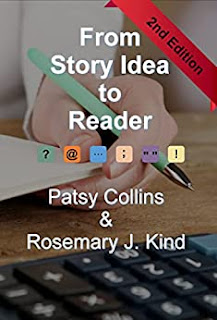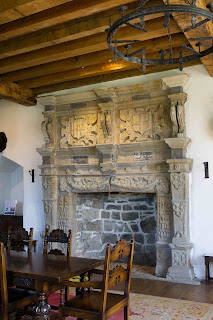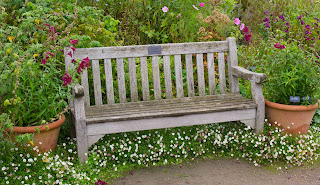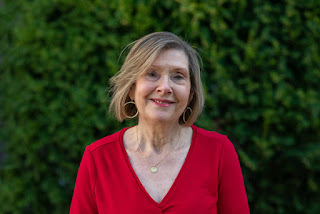LITTLE MURDERS EVERY DAYI’ve always loved the definition of a good story as one that consists of a beginning, a muddle and an ending. In other words, your story need something to happen. It needs a Plot.
Novelist E. M. Forster wrote:- ‘The King died and then the Queen died is a story. The King died, and then the Queen died of grief is a plot.’
So what’s the difference between a) and b)? Well, plenty. For starters a) isn’t going to make anywhere near your word count, is it? It’s over before it’s begun. Whereas, just think of all the questions b) provokes! Think of the muddles you can get the Queen into and then, finally, out of. Was her grief genuine? Was it, in fact, guilt that killed her in the end? Did she kill him? Or was it her lover who did the deed?
Plot then is what happens. Some writers insist they never plot. They start with character, they say, or setting. Look, there are no right answers or we’d all be Richard Osman by now. I’m somewhere in the middle of being a plotter and a pantser in that I know where I want to get to but I’m not always sure of the journey. As writer Flannery O’ Connor said:- ‘I have to write to discover what I’m doing.’
One thing is certain though. You need to give your character a muddle to get out of. And so, once your story’s finished and the muddle has been resolved, your theme will emerge. Because if Plot is what happens, then Theme is what the story says. It tells us something about the world and alters our view of it.
A plot can be plotted, but I’m not convinced that a theme can be themed. For example, there you sit at your computer, fingers poised. You need to come up with an idea for a story and quickly if you want to avoid getting the gas turned off.
‘I know!’ you tell the cat. ‘I’ll write about Poverty. Because as a writer of magazine stories that’s something I’m greatly familiar with.’
And then you sit there. And you sit there. And nothing happens. Because Poverty is a big word and a big theme and you just don’t know where to start.
Then you remember that young woman you pass on the street every day, huddled beneath her blanket, her faithful dog by her side. You don’t know her. Maybe you’ve never even spoken to her. Maybe you were too embarrassed. Felt guilty, waltzing past with your bag full of shopping – your vegan cup cakes and your packet of organic pasta.
Your mind wanders away from the girl beneath the blanket to the woman walking by. A character emerges. What if, suddenly, when she gets home, this woman’s high-flying husband is being led out of the house by the Police, having been accused of fraud. Suddenly she finds herself insolvent. So you write your story. Your plot gains momentum. And, once it’s finished, you discover the theme that has emerged. It’s not about poverty after all. It’s about something else altogether – loyalty, or self-discovery or finally understanding who your real friends are.
I’m not saying you can’t get a story by starting with a theme. But writing is about exploration. If you start with a theme already in your head, you’re likely to end up with a story that holds no surprises for you. It won’t throw any light on how you see the world and if it won’t do that for you then it’s unlikely to do it for your reader. Your story probably won’t be the story you’d have written if you’d started with a theme instead of starting with a character, putting her under pressure and tracking her journey. But it’ll be all the better for that.
If CHARACTER + MUDDLE + WAY OUT OF MUDDLE is a plot, then, depending on the sort of person she is, your character will react to her muddle in the way she generally reacts to muddles. And if she’s a different sort of person she’ll react to the same muddle in a very different way.
Each reaction to the same situation will be different because each character is different. And as long as the writer is faithful to the character they’ve drawn, once we put her under pressure, the easier it will be to trust that the direction she’ll take will be the one that best suits her nature and from there your theme will emerge.
Can I just add that I’m not talking about novel writing here – where undoubtedly more than one theme will emerge. I’m talking about short stories, where the number of words restricts or – depending how you look at it – focuses the writer. Because in a story of 1000 words, you’re going to have to make choices and get rid of anything you can’t devote proper attention to that might sidetrack the reader
American novelist and short story writer Gail Godwin wrote about the choices a writer has to make when beginning a new story, where lots of ideas collide and you have to settle on one.
“The choice is always a killing one,” she wrote. “One option must die so that the other may live. I do little murders every day.”
Sound familiar, fellow writers?
Geraldine has produced a collection of short stories, which is available here.
About the author – Geraldine Ryan is a proud Northerner who has spent most of her life in Cambridge – the one with the punts. She holds a degree in Scandinavian Studies, but these days only puts it to use when identifying which language is being spoken among the characters of whatever Scandi drama is currently showing on TV. For many years, she worked as a teacher of English and of English as a second or foreign language, in combination with rearing her four children, all of whom are now grown-up, responsible citizens. Her first published story appeared in My Weekly in 1993. Since then, her stories have appeared in Take a Break, Fiction Feast and Woman’s Weekly, as well as in women’s magazines abroad. She has also written two young adult novels – Model Behaviour (published by Scholastic) and The Lies and Loves of Finn (Channel 4 Books.) She plans for Riding Pillion with George Clooney to be the first of several short story anthologies.
Keep up to date with Geraldine’s news, be the first to hear about her new releases and read exclusive content by signing up to her monthly newsletter Turning the Page. By adding your details, you’ll also receive a free short story. Use this link to subscribe: https://bit.ly/Turningthepage



















